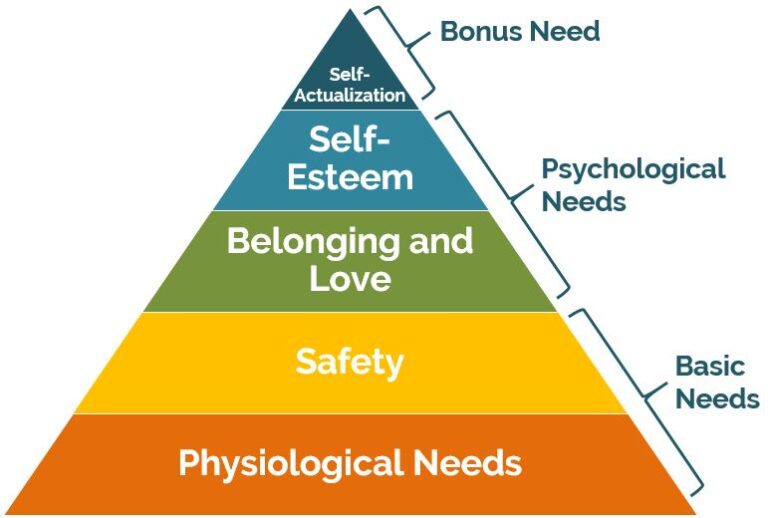How Can I Become A Better Leader?
How Can I Become A Better Leader? John Maxwell says that leadership ability is the lid on your personal and organizational effectiveness. I think of it this way; There isn’t a single problem to be solved or on an opportunity to be seized.
That doesn’t require leadership because there is no problem, or there’s no opportunity that could be addressed without bringing people together to achieve something great.
Definition of Leadership
Let’s begin with the definition.; leadership is the ability to influence the actions and outcomes of others in a way that delivers positive results.
How Can I Become A Better Leader
The keywords here are influence and positive results. But here are the first questions you must answer.
- How do you define effective, and how do you want to influence others in your role as a leader, we’ll explore the influence peace first, because that’s really about power?
If you were in a leadership supervisor, your management position, you have one source of power positional power. And if you’re looking for just simply compliance, positional power is a great tool. Just tell them what to do because you said so. Then tell them what will happen if they don’t?
Positional power also makes even your suggestions carry extra weight. Positional power, if you have it, never goes away, and there can actually be times when you might have to use it.
The building is on fire; for instance, you aren’t going to spend time trying to involve and explain the need to exit. But most people who ask about how to be a better leader are really looking for ideas on wielding the power of their position.
They want people to follow them because they choose to, not because they have to.
And if you’re one of those folks, you need to know about another potential source of power, and that’s the power of trust.
A study published by The Ken Blanchard Companies noted a high correlation between trust in your leader and discretionary effort, a desire to perform intent to remain with the organization, and organizational citizenship, which means that higher trust can actually influence being a better team member.
💥🎁 New Year & Easter Deals On Amazon !
Don't miss out on the best discounts and top-rated products available right now!
🛒 Shop Now and Save Big Today!*As an Amazon Associate, I earn from qualifying purchases.
So, in other words, being a more trustworthy leader increases the odds of you being a better leader.
One challenge, however, is that people don’t determine if they trust someone in exactly the same way.
A study that was done a few years back about what causes people not to trust their leader or not trust the organization collected over 1100 responses using a piece of software that categorizes those responses to open-ended questions you confined.
Here survey results in a summary overview of what they found. There are five factors that contribute to being able to trust you as a leader,
Top 5 Attributes of An Effective Leader
1. Character.
Your personal trustworthiness. People want you to be ethical and honest, and this one is critical because all leadership begins with personal leadership.
It doesn’t matter how effective you are with your communication or building relationships being competent and organizational leadership.
If others can’t trust you as a person.
2. Confidence.
Do you have what it takes to do the job? People are hesitant to voluntarily follow a leader into battle if they aren’t sure that he or she is up to the task.
It’s easy to take this to mean that you have to be an expert in every area of the business, but that’s not what our experience and research suggest.
You don’t have to be the best at everything. You do have to be competent at the responsibilities of your job or position
💥🎁 New Year & Easter Deals On Amazon !
Don't miss out on the best discounts and top-rated products available right now!
🛒 Shop Now and Save Big Today!*As an Amazon Associate, I earn from qualifying purchases.
3. Communications.
This one deals with your willingness to share and receive information and the belief of followers that you’re being transparent in that process.
Don’t take this to mean that you have to tell people everything because you don’t. You do to be effective as a leader, have to share what people need to know at the appropriate level when they need to know it.
If they trust your character and confidence, they’ll trust your motives
4. Consistency.
People want predictability in your actions, responses, and decisions.
For instance, they need to trust that you’re react the same way in every situation. They also don’t want you to play favorites in a way that’s discriminatory or unfair.
Followers need to feel that your direction or responses aren’t going to change on a whim.
5. Courage.
people trust leaders who will do watch right when it isn’t in their immediate best interest. They want to trust that their leader won’t throw them under the bus.
They respect those who protect and go to bat for them when it would be easier for more convenient to look the other way.
So, which of these five factors will make you a more effective leader? That’s for you to figure out, and you can do that through self-evaluation and asking for feedback.
Our research shows that black off or effective communication is the number one factor that creates mistrust between people and their leaders.
💥🎁 New Year & Easter Deals On Amazon !
Don't miss out on the best discounts and top-rated products available right now!
🛒 Shop Now and Save Big Today!*As an Amazon Associate, I earn from qualifying purchases.
If you’re looking for a place to begin, that’s always a good one.
